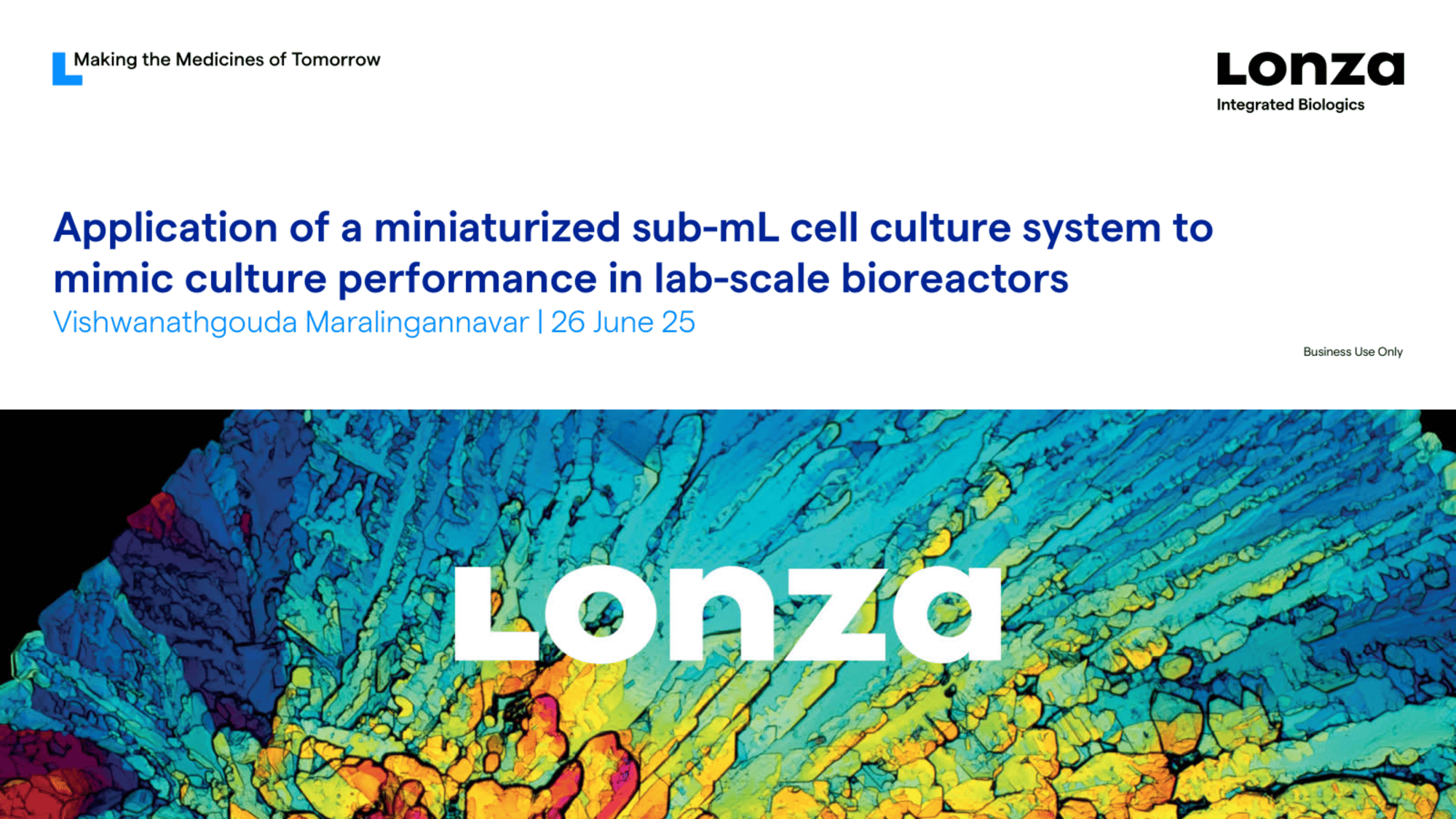Symposium 2025 Recordings
Application of a miniaturised sub-ML cell-culture system to mimic culture performance in lab-scale bioreactors
Dr. Vishwanathgouda Maralingannavar
Abstract
As the field of upstream bioprocessing continues to evolve, there is a growing need for methodologies that are both efficient and data-driven. High-throughput miniaturized cell culture systems have emerged as powerful tools in the pursuit of generating large datasets for precise process modelling. This study focuses on one such system that we have developed to accelerate data acquisition and enhance our understanding of perfusion processes.
Commercially available high-throughput systems are limited by high operating costs and limited options for customization. We use 96-deep well plates (96-DWP) to overcome these challenges and achieve four orders of magnitude miniaturization. We have adapted to discrete perfusion method to 96-DWP to mimic a perfusion process stage. The experimental model was tested on multiples clones across products and expression systems. The model could predict cell culture performance in lab-scale bioreactors. Cell concentrations reaching ~50×106 cells/mL were achieved in 96-DWP. We estimate this model reduces operating cost to approximately 1/10th and reduces the process duration by 3 days, while increasing the number of parallel cultures multifold.
Thus, a high-fidelity model that mimics culture performance of a lab-scale bioreactor was established. We have studied its applications in bridging the gap of screening tools and validated scale-down models established in lab-scale bioreactors. Such a system allows us to gather process knowledge in early stages of process development such as clone screening allowing us to shorten process development timelines. This work highlights the significance of high-throughput miniaturized cell culture systems in generating comprehensive datasets for process modelling.

Digital Bioprocessing
From Innovation to Impact